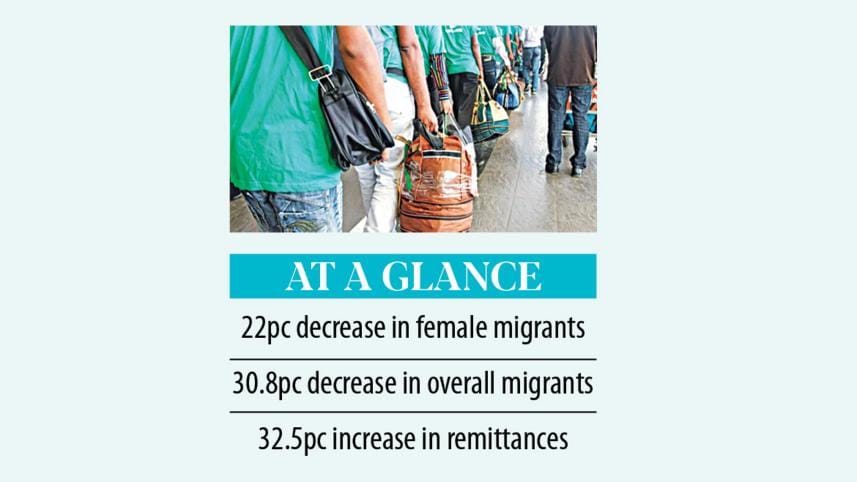Corruption behind shrinking overseas labour market

Corruption, irregularities, and fraud have caused a significant contraction in Bangladesh's labour market for migrant workers, according to a report by the Refugee and Migratory Movements Research Unit (RMMRU).
The report reveals that over 97 percent of Bangladeshi migrant workers have been sent to just 10 countries in the last five years.
This year, more than 90 percent of the workers were employed in six countries, with Saudi Arabia receiving over 60 percent of the total.
Malaysia and Qatar were also identified as major destinations.
However, the report highlights a worrying trend concerning female migrant workers.
The number of women migrating has sharply decreased this year, with only 54,696 female migrant workers going abroad.
This marks a 22 percent decline compared to the previous year.
Overall, the total number of migrant workers has fallen, with 906,355 leaving Bangladesh in 2024, a 30.8 percent drop from 1,305,453 in 2023.
Despite this, remittance inflows have seen a notable increase.
It is estimated that remittances in 2024 will total USD 26.4 billion, representing a 32.5 percent rise from the previous year.
Prof Tasneem Siddiqui, founding chair of RMMRU, presented the findings in a briefing at the Jatiya Press Club yesterday.
She attributed the shrinking labour market to systemic corruption and irregularities.
"In 2021, Malaysia reopened its labour market under a syndicate, but it was closed again in May 2024. This syndicate, led by Datuk Seri Aminul Islam and his Bangladeshi associate Ruhul Amin, embezzled USD 2 billion, which increased migration costs and left many workers stranded or forced to return home," she explained.
Prof Tasneem also said migration to several countries remained suspended in 2024, including Oman, Bahrain, the UAE, and the Maldives.
Additionally, migration to Italy and Serbia was halted due to the use of fake documents.
The report further pointed out that while migration slowed during the mass uprisings and economic instability, it has regained momentum in recent months.
In response to the challenges, Prof Tasneem recommended that the interim government prioritise good governance in the migration sector.
She called for the establishment of a dedicated migration commission, an increase in budget allocations, and the formulation of effective policies to address international migration challenges.
She also stressed the need for policy reforms, improved skills development for workers, and the creation of safe employment opportunities for women.
Transparency in the recruitment process and the strengthening of training centres were also emphasised as key to improving the migration system.



 For all latest news, follow The Daily Star's Google News channel.
For all latest news, follow The Daily Star's Google News channel.
Comments